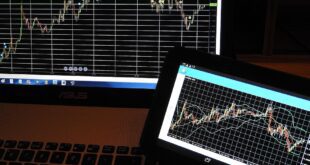3 Key Tips for Mastering Political Analysis
Politics affects just about everything in our lives – from the healthcare system we use to the economy we rely on. For this reason, being able to properly analyze political events is more important than ever. This article is your definitive guide highlighting the most important areas of political analysis.
The first tip, investigate historical events relevant to the issue at hand, can be time-consuming, but it ensures that one fully understands the nuances of an issue. It provides context to the issue; knowing how we arrived at this point can colored the how one interpret it. In contextualizing the issue, people can create well-informed perception and ultimately practice objective analysis.
Second, examine the diversity of arguments related to the issue. Studying a wide range of opinions, covering various sides of the political spectrum, enables people to move away from a tendency to confirm their biases rather than solutions to difficult problems. It prompts people to think creatively and develop innovative proposals.
Third, identify potential biases in both the sources and the political system, which includes individuals and groups involved in the issues being considered. Biases present themselves in a variety of ways; it could be implicit as changes in tone, exaggeration in numbers or graphs or outright personal claims. Therefore evaluating sources of information is remarkably essential.
Tools for Political Analysis
While these foundational tips form the basis of an individual’s ability to find, evaluate, investigate heavy volumes of information to pull out the essential perspectives and facts, the value of technological advancements can’t be dismissed. Even with smartphones and cloud storage, computer software and tools are now available to provide tutorials, real-time coverage and comparative studies that facilitate high quality, personalized and more efficient analysis. Below are some of the most compelling tools that professionals invest in;
1. GIS
Geographic information systems (GIS) map information to provide insights and effortlessly communicate critical data. The application of GIS in political analysis is particularly extensive, for instance plotting data related to taxation to election results provide geographical understanding to political parties regarding where they can directly increase their support base.
2. Social Media
Social media provides a platform where everyone is both a source and analyst, offering significant insight different from mainstream media. The challenge with social media analysis lies in building massive rich data sets accurately sorted and calculated to provide detailed reports while also taking the opportunity to understand how users communicated construct early indicators of trending online conversations centrally.
3. Zotero
Zotero is designed for both individual and organizational use with the aim of saving time, simplifying analytics and organizing research papers into catalogs that are easy to digest. As evidence plays a substantial role in policymaking, especially in democratic governments, individual analysts should at least recommend it to their peers. Moreover, comparative studies become sensitive when there is accuracy, completeness and accessibility between scientists; transition from traditional format to these computer systems is imperative.
Conclusion
Grasping the fundamentals ‘Identifying potential biases, investigating within the context of history and examining with a diverse range of opinions’ along with reliance on the latest computer tools and experts to secure and understand details democratizes decision making. While embracing technological enhancements realizes the value of the gathering massive amounts of data, developers remain responsible for honing computer languages and simplifying scientific writings so social scientists can both leverage technology and new advanced tools in keeping on trend with scientific analysis of data acquisition within politics.
 Mind Uncharted Explore. Discover. Learn.
Mind Uncharted Explore. Discover. Learn.



